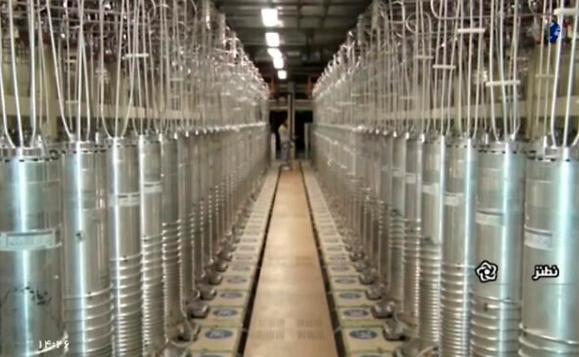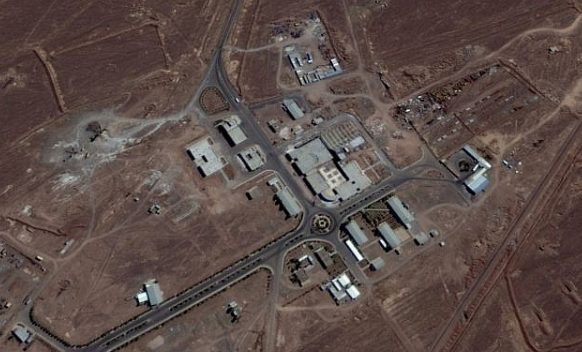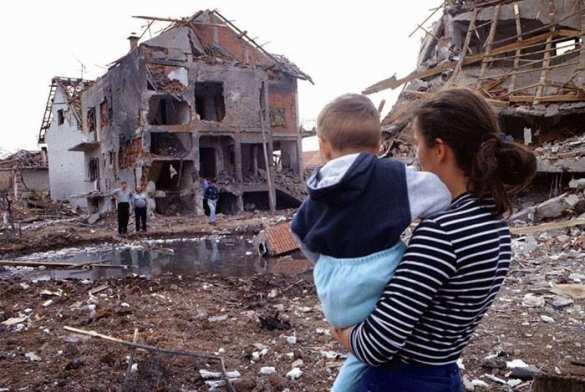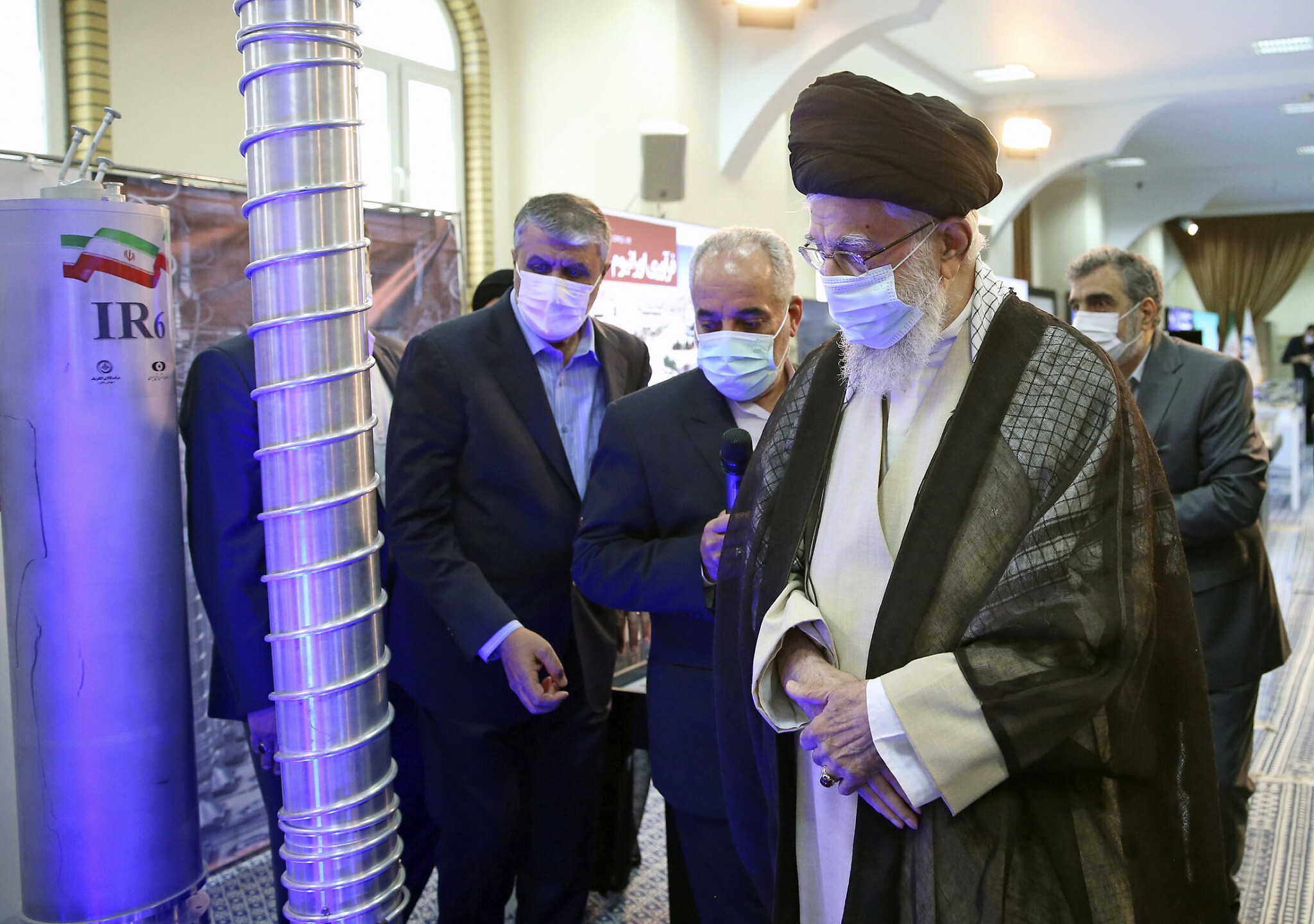Tehran also claims to build new centrifuges, says moves are retaliation for international resolution criticizing its lack of cooperation with UN nuclear agency
Iran said Tuesday it had begun enriching uranium to 60 percent purity at its underground Fordo site, a technical step from weapons-grade levels of 90%, saying the move was in response to international criticism.
The enrichment was being carried out using the advanced IR-6 centrifuges at the facility, and was a response to the International Atomic Energy Agency’s resolution last week criticizing Tehran’s lack of cooperation with the nuclear watchdog, according to Iranian state media cited by Reuters.
“In a letter to the International Atomic Energy Agency (IAEA), Iran has informed the agency that it has started enriching uranium to 60% purity at Fordo site,” said the semi-official ISNA news agency.
A satellite image from September 15, 2017, of the Fordo nuclear facility in Iran. (Google Earth)
Iran said Tuesday it had begun enriching uranium to 60 percent purity at its underground Fordo site, a technical step from weapons-grade levels of 90%, saying the move was in response to international criticism.
The enrichment was being carried out using the advanced IR-6 centrifuges at the facility, and was a response to the International Atomic Energy Agency’s resolution last week criticizing Tehran’s lack of cooperation with the nuclear watchdog, according to Iranian state media cited by Reuters.
“In a letter to the International Atomic Energy Agency (IAEA), Iran has informed the agency that it has started enriching uranium to 60% purity at Fordo site,” said the semi-official ISNA news agency.
Iran’s Student News Network announced that Tehran would additionally build new sets of centrifuges at the Natanz and Fordo nuclear sites.
Under the terms of the 2015 agreement with world powers, Iran is only permitted to enrich uranium to 3.67% purity. That deal gave Iran sanctions relief in return for curbs on its nuclear program to prevent the production of a weapon.
The deal also called for Fordo to become a research-and-development facility and restricted centrifuges there, used to spin enriched uranium into higher levels of purity, to non-nuclear uses.
In September, Defense Minister Benny Gantz said the enrichment capacity had tripled at Fordo over the past year, months after Iran said it had begun enriching uranium to 20% purity at the plant.
On Sunday, Military Intelligence chief Maj. Gen. Aharon Haliva said Iran has made “significant progress” toward producing 90% enriched uranium.
“The moment is coming when the greatest test of the international community will come to light, when Iran entertains [the idea of] enrichment at 90%, even if only symbolically,” he said.
The IAEA reported in July that Iran had 43 kilograms of uranium enriched to 60% purity at other sites, enough fissile material for one nuclear weapon if Iran chose to pursue it.
However, Iran still would need to design a bomb and a delivery system for it, likely a months-long project.
Iran said that the latest upgrade in enrichment was a retaliatory measure against the IAEA over the resolution submitted by the United States, Britain, France and Germany to the UN nuclear watchdog’s board last week, censuring Iran over its lack of cooperation with the agency.

On Sunday, Iran’s foreign ministry spokesman Nasser Kanani said a response “was realized today in the presence of IAEA inspectors in the Natanz and Fordo enrichment complexes,” without specifying what the measures entailed.
He also hinted at the likelihood that the IAEA delegation’s next visit to Iran would be canceled.
Kanani added that “the Islamic Republic of Iran is always prepared to respond in the appropriate manner to the actions of Western parties when they return to their commitments.”
The resolution came amid an impasse over undeclared uranium particles in Iran, and as talks seeking to revive the nuclear deal have stalled, alongside international condemnation of Tehran’s response to domestic protests.
The deal collapsed after Washington’s unilateral withdrawal in 2018 under then-president Donald Trump.
Israel has long opposed the nuclear accord, saying it delayed rather ended Iran’s nuclear progress and arguing that sanctions relief empowered Tehran’s proxy militias across the region, with expected incoming prime minister Benjamin Netanyahu coming out strongly against the deal.








